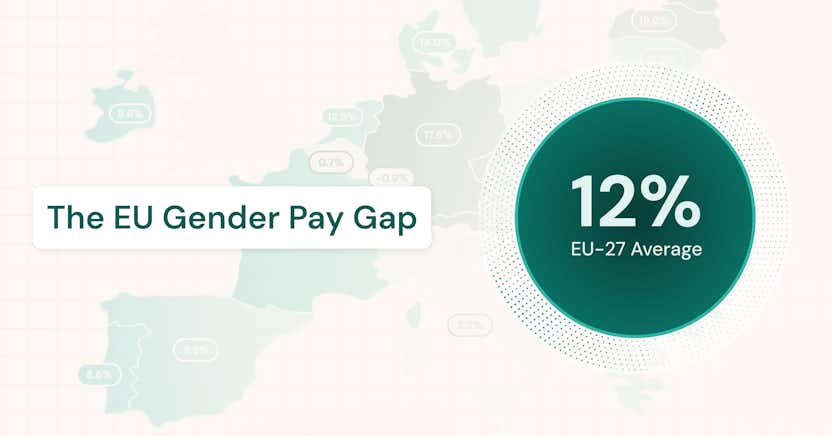
Local requirement
United Kingdom
For organizations with 250+ employees in the UK, annual pay gap reports are required. This page covers UK reporting requirements, why smaller organizations may want to report, and how PayEquity by beqom can help organizations of all sizes.
Local reporting requirements in the UK
In the UK, gender pay gap reporting is mandatory for organizations with 250 or more employees. (However, smaller organizations may also choose to report.) Employers must report a few key gender pay gap metrics, along with a written statement (waived for most public employers) to the UK government. Reports must be made publicly available.
The reporting system uses a snapshot date of April 5 for private, voluntary and public employers and March 31 for most public organizations. Reports are due within a year of the snapshot date.
One unique feature of the UK reporting system is that it lets employers add an optional supporting narrative and/or action plan. This information is never required. But including it lets an organization publicly explain an identified pay gap and describe what will be done or has been done to address the issue.
Requirements
The process starts with the following (see Government guidelines for gathering the data):
- Gathering gender, hourly pay and bonus pay data for each employee
- Determining which employees are “full-pay relevant”
The report must include the following calculations:
- The mean and median gender pay gap of hourly pay (for full-pay relevant employees)
- The gender distribution in each quartile of hourly pay (for full-pay relevant employees)
- The percentage of men and women receiving bonus pay
- The mean and median gender pay gap of bonus pay (for those employees that receive bonuses).
PayEquity by beqom lets organizations create a UK gender pay gap report with just a few clicks. This report is easily exported to both PDF and Powerpoint.
What happens next
Reports should be uploaded to the gender pay gap service website. They must also be posted on the organization’s website so they are publicly accessible. Organizations with 250 or more employees do face fines for non-reporting.
There are no financial penalties for organizations that report a gender pay gap, even a large one. However, the reports are all publicly available. So a large gap with no effort to close it may pose a risk to the company’s public reputation, marketability, and employee recruitment and retention. It’s therefore in the organization’s best interests to make efforts to close the gap.
While reporting is currently optional for smaller organizations, they may still choose to report. In this case, reporting furthers pay transparency and publicly shows an investment in workplace equality.
Further support in PayEquity by beqom
PayEquity by beqom is a holistic solution that lets companies easily generate UK-compliant reports. It also offers several additional features to help companies make meaningful progress on their pay equity goals:
- Pay equity analyses: This tool not only measures the adjusted pay gap, but it also provides suggestions (specific raises for specific employees) on how to close it.
- Workplace equity feature: This tool gives an overview of the diversity in an organization’s workforce composition. Understanding workforce diversity is key to understanding why an unadjusted pay gap might exist. This tool also shows how the organization’s workforce is changing.
- Compensation Assistant: When a company closes its pay gap, this tool helps ensure that it does not come creeping back through promotion or new hire decisions.
- Drill-down capabilities: Insight into specific groups of employees helps employers get a better understanding of their pay structure.
Please note that while this local resource information has been compiled by beqom's legal and pay equity experts, it does not constitute legal advice.
More on local requirements and reporting
beqom's pay equity tools make complying with local requirements and regulations easier than ever before, allowing organizations to conduct pay equity analyses to identify any pay disparities.

Sweden — Pay equity analysis and reporting (lönekartläggning)
Every year, Sweden requires all employers to conduct a pay equity analysis (lönekartläggning) with a few key requirements. Find out more on our page.

State of California — Pay transparency and pay data reporting
In the US state of California, pay equity legislation is relatively progressive. It includes both a data reporting requirement and a pay transparency law. This article goes through the requirements for all aspects of the law and how PayEquity by beqom can help support employers.

Ireland — Gender pay gap reporting
This page provides information for organizations looking to understand and respond to Ireland’s Gender Pay Gap Information Act 2021.

France — Gender equality index
For companies operating in France, this article provides information on pay equity reporting and associated legal requirements.

Israel — Gender pay gap reporting
This resource article provides information about Israel’s gender pay gap reporting requirements and an overview of how to create and complete the reports.

Spain — Pay equity analysis and reporting
Pay equity laws in Spain ask all companies to keep a remuneration register, with additional analysis and reporting for slightly larger employers.

USA - Pay data reporting (EEO-1)
Although no gender pay gap reporting per se is required, some demographic data reporting is required in the US.

UK — Gender pay gap reporting
The United Kingdom (UK) requires gender pay gap reports from organizations of a certain size. This page outlines the UK requirements and how to get started.

Norway — Pay equity analysis and reporting
In Norway, employers with 50+ (sometimes 20+) workers must prepare annual and biannual pay equity reports. This page outlines the requirements.

Canada — Pay equity analysis and reporting
Companies operating in Canada should be prepared to comply with federal pay equity analysis and reporting laws. Some provincial regulations also exist. We give readers an overview of Canada’s detail-oriented requirements.

Local requirements - Pay equity analyses and reporting
Get an overview of some of the local pay equity requirements that many of our customers need to fulfill, and achieve effortless compliance today.
Recent blogs on Pay Equity

The C-Suite’s Language: How to Win Executive Buy-In for Pay Equity and Transparency
Win executive buy-in by translating pay equity goals into C-suite language: ROI, risk reduction, and operational efficiency.
Read more

The EU Gender Pay Gap
The average EU gender pay gap sits at a persistent 12%. Download our new infographic for an overview of the gender pay gap across member states and the national transposition status of the EU Pay Transparency Directive.
Read more

Humanizing Compensation: Why Pay Is More Than Just a Paycheck
Compensation is about more than just a paycheck. Discover why it's essential to humanize compensation to build trust and create a more engaged workforce.
Read more
